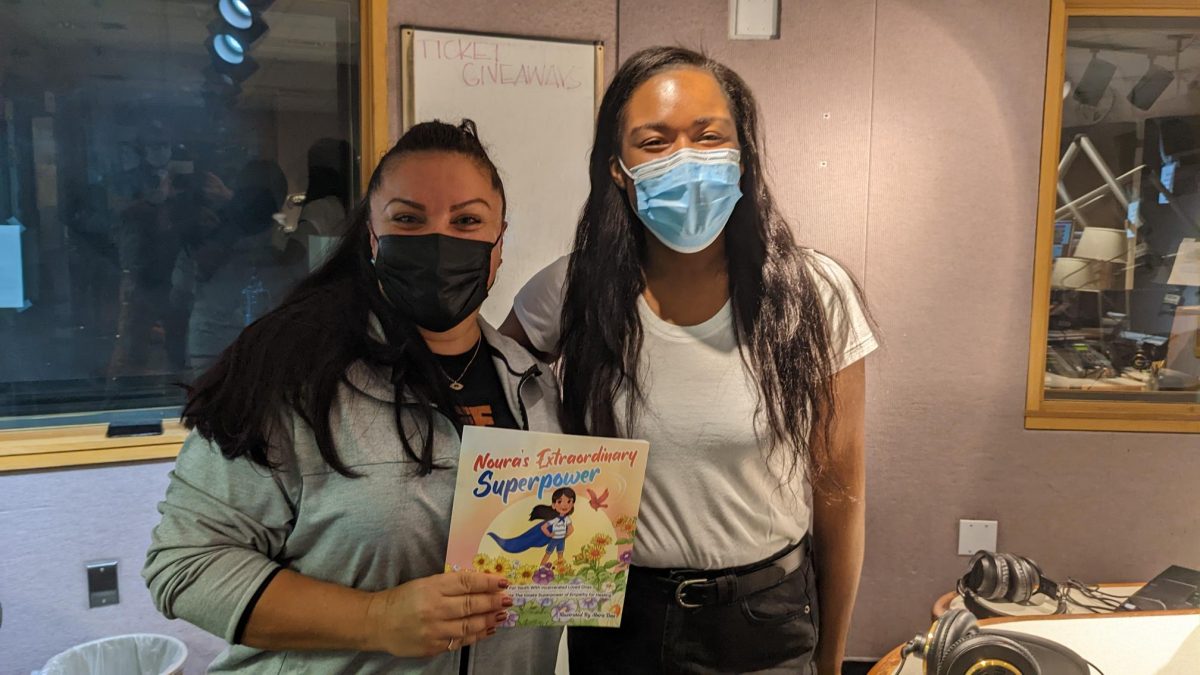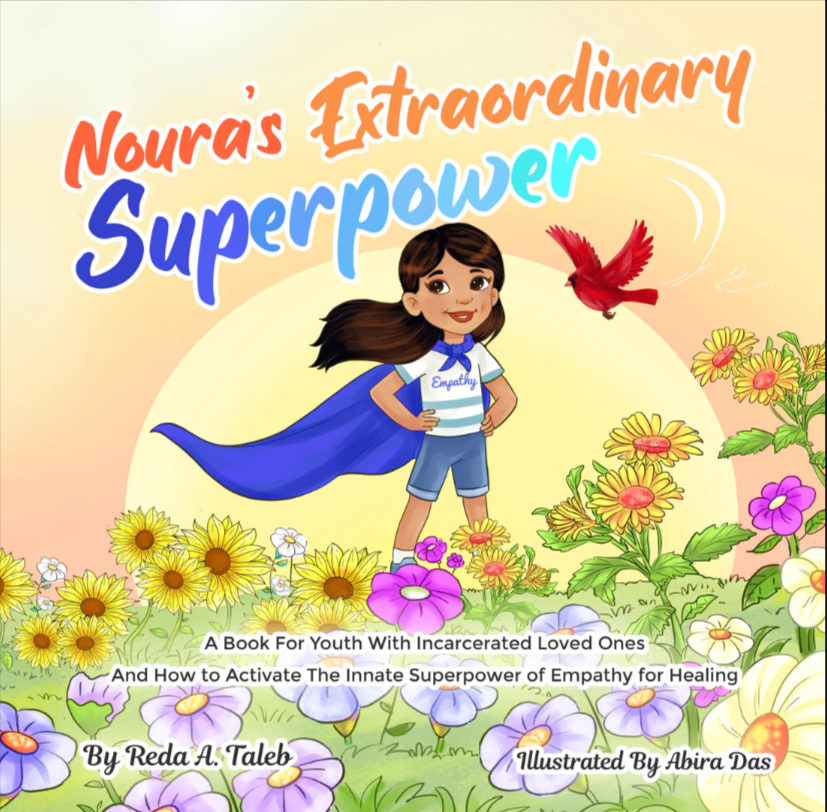Author Reda Taleb is working to change the world for incarcerated people and their children
“Noura’s Extraordinary Superpower” tells the story of a child who experiences the unexplained absence of her father.

Reda Taleb (left) with "CultureShift" co-host Tia Graham in the WDET studios, in Detroit, Mich. in October 2022.
Reda Taleb calls herself a “decarceration” advocate.
“We are really stepping away from, in an intentional way, using mass incarceration [and the] police as a default way of how we handle issues that arise in our communities,” Taleb explains.
Instead of prisons and police, Taleb and other decarceration activists are working to get people the resources they need to keep communities safe, including mental health support, affordable housing and jobs.
“All those things that really make a community safe and make it thrive,” states Taleb. “So that people are living their best life and reaching their highest potential.”

Taleb’s passion and expertise for this work grew out of her own experience as the child of someone who had been incarcerated. She’s used her story to write a book for children with incarcerated parents that is deeply rooted in Middle Eastern North African (MENA) and Muslim culture.
According to Taleb, this is a group that is often excluded from discussions around incarceration.
“You don’t really hear a lot about MENA, SWANA (Southwest Asian North African) [and] Muslim communities impacted by incarceration,” Taleb explains. “We wanted children from my particular background to feel seen, valued and heard.”
The book, entitled “Noura’s Extraordinary Superpower,” tells the story of a child who experiences the unexplained absence of her father. This was Taleb’s experience as well.
But instead of telling her own story, Taleb uses the book to demonstrate how family, school and community can create a supportive environment for children experiencing the loss and shame associated with parents in prison.
“Throughout the book, you get to see…what community care looks like in a classroom where the whole child is centered,” Taleb shares. “And then throughout the story, you really begin to see how beautiful it is that Noura’s mom and her teacher have facilitated this discussion with her.”
Being able to show a blue collar Middle Eastern Muslim family celebrating love and faith was important to Taleb because it doesn’t happen often in media.
“I yearned so much as a little girl to see myself and I never saw myself or my hijabi mom in a book,” Taleb says. “And it matters to me for the grandchildren in the family, my nieces and nephews, [and] my own future children to have access to this because it just affirms your identity and it really makes you feel that you belong and that you have something to contribute.”
She continues: “I would love to see more of these stories being represented in our community — for the MENA, SWANA [and] Muslim community.”
Trusted, accurate, up-to-date.
WDET strives to make our journalism accessible to everyone. As a public media institution, we maintain our journalistic integrity through independent support from readers like you. If you value WDET as your source of news, music and conversation, please make a gift today.

